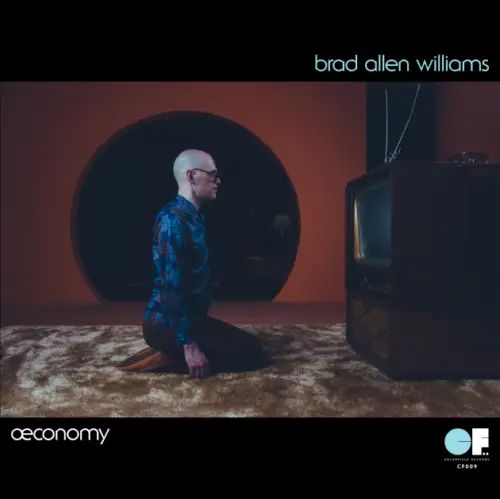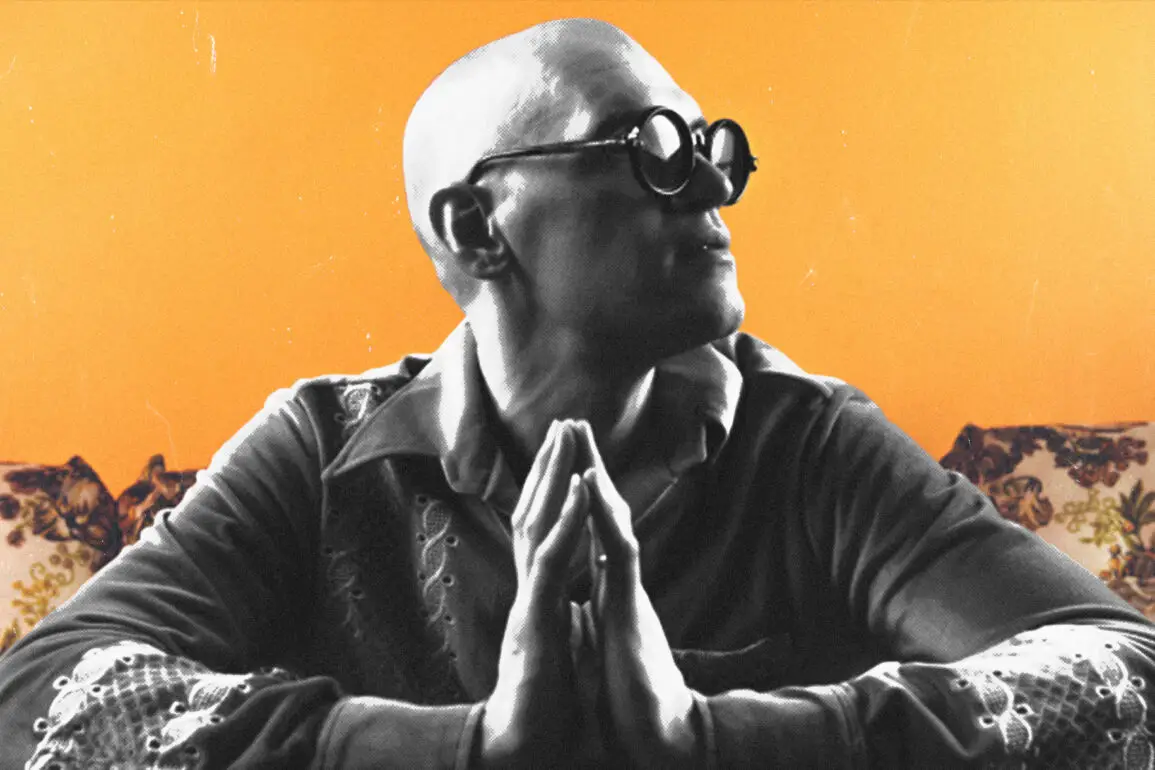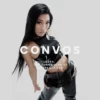
These interview questions were conducted before the release of his album, which came out February 10th.
How did you get into music?
I can’t remember not being into music! My immediate family weren’t musicians, but they did have a lot of records around, and I became obsessed with playing those before I became interested in playing instruments.
When I was 5 years old my favorite hobby was to dub 7” records onto cassettes and make mixtapes. I used to memorize artist, title, producer, B-side, catalog number… I basically played with records while other kids played outside.
Around that age I saw Chuck Berry on television with a red Gibson ES-355. I can confidently identify the make and model of guitar from hindsight alone—the exact visual is indelibly seared in my brain; it’s my earliest vivid memory. I begun begging for a guitar immediately, and eventually scored.
Who/what were some of your major musical influences?
Early on it was whatever records that happened to be laying around the house, or whatever was happening around Memphis, where I grew up. This included random 20th century ephemera, Phil Spector productions, Stax/Volt icons like Otis Redding and Carla Thomas, the Beatles… Duke Ellington’s “Mood Indigo” was among the records, too.
Once I became a bit more aware of the outside world, I quickly got Hendrix-obsessed, along with a lot of what was happening in the 1990s—Nirvana, Dinosaur, Jr., Sonic Youth, Living Colour, the Breeders…
In high school, a friend turned me onto Charlie Parker. I didn’t have a clue what the fuck was going on, but I liked something about it, and that spiraled out into a massive quest of discovery with periodic obsessions—Grant Green, Thelonious Monk, Sun Ra…
Once I reached late Coltrane and Sam Rivers something kind of connected in my mind: they crystallized what I continued to love about Hendrix and Sonic Youth. I perceived in all a very natural reconciliation of the extremes—the delicate and the chaotic. All had moments of total improvisation, which appealed to me. And for all, terrestrial (the blues) and celestial (complete transcendence of harmony and acoustic timbre) not only coexisted, but mutually reinforced.
I could wax on and on about this—so many musicians have been very important to me, and I still feel like I’m constantly having my life changed and my eyes opened.
What do you think of the current scene in Brooklyn?
Broadly speaking, ever-increasing cost of living has made it so much harder to take risks of any kind in New York City. Without being too much of a downer, this inevitably impacts the type of art that gets made within that milieu.
When I think about what Sam Rivers built with Studio Rivbea in the lower east side of Manhattan in the 1970s, the first thing to come to mind is that there’s absolutely nowhere in NYC where such a thing would be economically feasible today.
But what’s even more concerning to me is that even less-ambitious artist lifestyles are becoming unsustainable. The era of waiting tables during the day to make rent while pursuing a performing career at night is gone. If a young person doesn’t come from a wealthy background, moving to NYC with the mission of becoming an artist is a longer and longer shot with each passing year. This obviously limits which stories are told, which perspectives are shared and heard, and as a result has a depressive impact on the quality and relevance of the work.
On a bright note, creative people are resilient and some amazing art continues to get made in spite of these pressures. It’s just spreading out geographically in ways it hadn’t before, and perhaps more of it is coming from people who have roots in the five boroughs.
Are there any newer artists that have caught your attention?
Obviously what we mean by “newer” artist could vary, but I’ll consider it to mean “people who emerged as solo artists within the last decade or so.” And there are so many!
Some, like Samora Pinderhughes and Brittany Howard, I have the good fortune to work with from time to time. Others, like Rafiq Bhatia, Cecil Alexander and Brandee Younger, I mostly admire from the outside.
It’s such an incredible time to be a fan of music. More and more artists are able to present fully-intact creative visions without compromise. It’s truly inspiring to witness and, hopefully, contribute to.
How would you describe your sound?
The hardest question! And I’m truly the worst person to ask—I just make things I like and would want to listen to. I consider it none of my business how others receive the work, but I can certainly share some artistic values and priorities.
I’m obsessed with the idea of alternate futures. What would’ve happened aesthetically/artistically if random moments of historical chance had different outcomes? I love older projections of futurism—how someone in 1966 might have imagined the year 2023. How were they wrong? What could’ve changed that would’ve made their projection more-or-less correct?
Also central is something I mentioned earlier: finding the place where the terrestrial and the celestial meet; how to make the earthy and elemental coherent with the futuristic.
But with that said, I have something of an aversion to literalistic fusions or blends. I don’t like anything that feels like fence-straddling, or trying to have “the best of both.” I’m much more interested in alchemical concoctions. I aspire to figure out how to take known quantities and make from them an unknown—not just combining things we like, but mixing our media in service of expressing something that heretofore felt inexpressible.
What’s your creative process like?
I think there’s an instructive distinction to be made between intent and opportunism.
I’ve always been more of an inventor than an opportunist. I like to imagine something and then set about creating it, so I’ve spent my entire life amassing knowledge and building skills that help bring ideas to fruition.
This way of creating feels most liberating to me, because I’m not bound to luck or whim. I’m not sitting around waiting to become inspired—I feel like I’ve developed the tools to distill the inspiration that’s ever-present in the atmosphere.
But I’ve seen so many brilliant peers and contemporaries do it this other way, where they just pitch a ton of raw material into a sandbox and then dive in and start experimenting until something fits together. And very often they’ll come up with something incredibly interesting that I wouldn’t have been able to contrive with my more intent-oriented processes.
On this most recent record œconomy, I was kind of thrust into that latter way of being. My co-producer Pete Min requested that I show up with nothing written in advance, and I allowed myself to sort of relish the exhilaration of that. Day one, I simply sat down at the nearest instrument and began improvising, trusting that we’d make it into something. And you know, I feel like we did—I ended up with a collection of work that I’m quite proud of, and it isn’t what I would’ve made with my usual machinations.
You’ve worked with some of the biggest names in music through the years, like Brittany Howard, Bilal, Nate Smith, Cory Henry, etc. What’s your experience been like working with artists such as those? And what’s been some of your most memorable moments with them?
It’s a predictable answer, but a truthful one: working with such brilliant creative visionaries is nothing less than sustaining and life-affirming. One thing all of the above have in common is an ability to find pathways where other people see limitations.
Some of the best moments for me are checking out records together backstage, on tour buses… learning more what someone’s about, what has inspired them…
But I should also say that I’ve had equally-rich moments with some artists whose profile isn’t yet quite as high. There is just a staggering amount of creative genius around us all the time, and only a tiny fraction ever gets recognized on a wider scale. There are some deep artists out here just putting on their metaphorical hard hat and going to work every day.
Anything that you’ve learned from those collaborations and still use today?
Where to even begin? Some of the lessons are practical. There are a million miles between being an artist and being onstage with an artist, and I think serving in the latter role for a bit is important to really drive that home.
But also just watching the open-mindedness that’s required to really do this at a high level; the ability to roll with punches and adapt. To turn challenges into opportunities, both artistically and otherwise.
Finally, a certain creative restlessness and open-mindedness is a rather consistent feature. One of my mentors, the great Harold Mabern, Jr., constantly hammered the importance of being “hungry for the music.” I don’t think this quite clicked for me until a bit later on, but all of the above embody this ethos, in my estimation. None are resting on any kind of laurels. During my time with them, they’ve always been intellectually-curious about what’s unfolding in the creative world around them.




